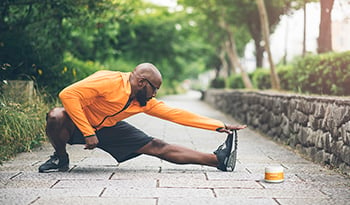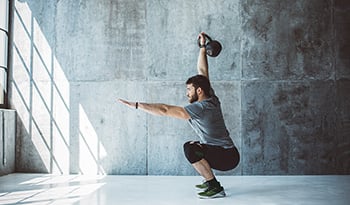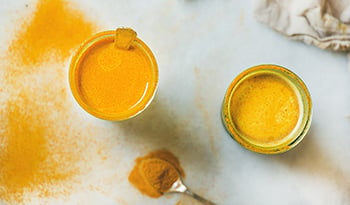3 Essential Supplements for Vegan Athletes
DISCLAIMER:This blog does not intend to provide diagnosis...
- In this article:
- 1. Protein
- 2. Creatine
- 3. Beta-Alanine
- Practical Supplement Considerations for Vegan Athletes

Veganism continues to surge in popularity as more and more health-minded individuals are experimenting with plant-based diets. When following a vegan diet, conscious adjustments need to be made on a regular basis to ensure one is consuming enough nutrients, vitamins, and minerals to promote both longevity and sustainability of the diet.
For example, paying close attention to vitamin B-12, zinc, calcium, iron, and omega fatty acids and their intakes are essential for success when following a vegan diet.
Modifications and additions to the vegan diet are even more important for vegan athletes and active individuals, as their daily bodily demands and needs will be higher than a sedentary individual. With a body that’s always moving and focused on performance, it’s important to pay attention to a few key nutrients, vitamins, and minerals that are needed for athletic performance.
Vegan sports supplements geared towards active individuals are only one-way vegan fitness enthusiasts can replenish their nutrient and energy stores and push performance further. In this article, we’re going to cover three essential vegan sports supplements that active individuals could and should consider adding to their daily regimen.
1. Protein
Protein is absolutely key for performance, recovery, and continual growth, and this is especially true for vegan athletes and health enthusiasts. It’s not impossible to obtain enough protein on the vegan diet, but there does usually need to be more of a strategy behind consumption, and this is when vegan protein powder comes in.
Vegan protein powder is fantastic for bumping daily protein consumption and it holds a few benefits that shouldn’t be overlooked. For starters, most vegan protein powders come loaded with essential amino acids. Amino acids are the building blocks of protein and many vegan protein sources lack the full list of the essential amino acids. Vegan protein powders can fill this gap by bumping up daily amino acid consumption.
By increasing daily protein intake, vegan athletes can ensure they’re also achieving muscle protein synthesis, which is the process of the body using protein to build and repair muscle. When it comes to muscle protein synthesis, a full scope of essential amino acids is fundamental for creating an anabolic environment within muscles.
One study published in 2012 in the Journal of Physiology suggested that supplements with a full scope of essential amino acids play a larger role in triggering muscle protein synthesis following physical activity. With this in mind, it’s important for vegan athletes to acknowledge the protein sources they’re consuming along with the amino acid profiles that come with them.
To further the point above about the importance of protein in a vegan diet, there have been a couple of studies pointing out how vegetarian proteins can help boost body composition, performance, muscle thickness, and even force production. One study in particular worth referencing was published in 2019 in Sports and compared whey and pea protein in regard to how they impacted eight weeks of high-intensity functional training.
Subjects in this study were split into a whey protein group and a pea protein group. Authors had subjects consume their respective protein shakes before and after exercise and in-between meals on non-training days. Before and after the training intervention, authors recorded every subject’s muscle thickness, 1-Rep Max strength for the squat and deadlift, Bioelectrical Impedance Analysis (BIA) for body composition, and a mid-thigh pull test for force production.
Following the eight weeks of training, the authors suggested that both groups improved their muscle thickness, body composition, 1-RM strength, and force production, and both proteins produced similar results in doing so. Now it’s worth noting that these results are likely byproducts of consistent training and it’s not just the protein powder, however, it’s still interesting food for thought in regard to the importance of quality protein when paired with activity.
3 Reasons Why Vegan Athletes Should Consider Protein Powder
- Most vegan protein powders contain a full profile of essential amino acids, which can fill gaps where other foods fall short.
- It’s great for consumption before or after a workout, or any time of day when a protein-heavy snack can benefit energy and recovery.
- It can be used to enhance foods like oatmeal and provide additional flavor and variety to a diet and it’s easy to consume on-the-go.
2. Creatine
Creatine is another sports supplement that active vegans can greatly benefit from. Creatine is essential for daily life and plays a huge role in physical activity. In the body, creatine is an organic compound that recycles adenosine triphosphate (ATP), which is the most basic form of energy found in our cells and is heavily present within the brain and muscle tissue.
In exercise, creatine has been linked to a plethora of benefits including the improvement of power production, energy, and muscle growth and size. It’s one of the few supplements that has multiple studies all suggesting similar benefits, so it’s a supplement that should be at least considered to complement an active individual’s lifestyle. The only caveat that comes with creatine is that naturally in diets it mostly exists within animal products, which makes it difficult for vegans to consume enough on a daily basis, especially highly active individuals.
Generally, diets that are void of animal products contain lower amounts of creatine and the longevity of the plant-based diet can cause a natural decline of creatine that exists within the body.
In a study published in 2017 in the Journal of the International Society of Sports Nutrition, multiple vitamins, minerals, and supplements were explored and discussed with best uses for active vegan athletes. Creatine was among the list of sports supplements that proved to be most worthwhile due to vegan diets generally lacking adequate amounts of creatine in their diets.
3 Reasons Why Vegan Athletes Should Consider Creatine
- People that follow diets void of animal products usually have less bodily creatine.
- Creatine is one of the few supplements that has a good amount of research that supports its benefits and best uses.
- For many, creatine is easy to implement into a diet or pre-existing supplement regimen and can be mixed and taken with nearly all liquids.
3. Beta-Alanine
Another useful supplement that vegan athletes could consider is beta-alanine. Beta-alanine is a naturally occurring beta-amino acid that is mostly found in meat and poultry. Similar to creatine, diets void of animal products might be low in this useful amino acid.
In the body and in exercise, beta-alanine is useful due to its interaction with carnosine, which is an antioxidant and cellular buffer that is found in the muscles and nervous system. For active individuals, beta-alanine can play a vital role in increasing muscle carnosine levels.
An increase in muscle carnosine due to beta-alanine supplementation has been suggested and linked to improved high-intensity workout performance. This is useful to know for athletes that partake in short bursts of exercise, usually 60-seconds and under. In addition to high-intensity performance improvement, beta-alanine has also been suggested to be useful at attenuating the onset fatigue in longer workouts, so it could be worth considering for both High-Intensity Interval Training (HIIT) and cardio lovers. Beta-alanine can be taken prior to working out and mixed with juices or flavored liquids to make it easy to consume.
2 Reasons Why Vegan Athletes Should Consider Beta-Alanine
- This beta-amino acid might increase muscle carnosine levels that may be naturally lower in vegan diets.
- Beta-alanine might assist and improve high-intensity exercise, the onset of fatigue, and aerobic exercise.
Practical Supplement Considerations for Vegan Athletes
The supplements that were included in this list made it due to research that has consistently suggested them to be worthwhile for performance, but also because vegan athletes have a list of unique dietary considerations to take into account.
If a diet is naturally low in a vitamin, mineral, or compound that has been shown to assist and improve performance, then it’s good to at least explore how it could effectively be used to match your goals and needs. After all, if it can help with little implication, then it’s likely worth it for a performance boost.
The above supplements are generally safe to consume on a regular basis, but as always, before implementing any new supplement into a daily regimen and diet, it’s a good idea to first consult with a medical professional.
References:
- https://www.ncbi.nlm.nih.gov/pmc/articles/PMC3447149/
- https://www.ncbi.nlm.nih.gov/pmc/articles/PMC6358922/
- https://pubmed.ncbi.nlm.nih.gov/12945828/
- https://www.ncbi.nlm.nih.gov/pmc/articles/PMC2780977/
- https://www.ncbi.nlm.nih.gov/pmc/articles/PMC6265971/
- https://pubmed.ncbi.nlm.nih.gov/14600563/
- https://www.ncbi.nlm.nih.gov/pmc/articles/PMC5598028/
- https://pubmed.ncbi.nlm.nih.gov/26175657/

 By Jake Boly, CSCS
By Jake Boly, CSCS


